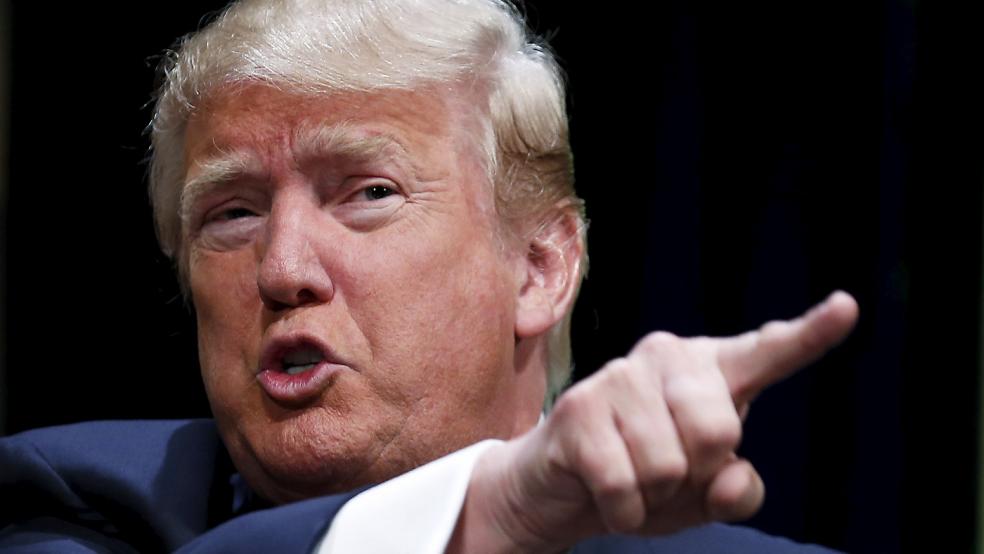Forget experience, policies, and ideology in the 2016 presidential primary fights, in both parties. Voters have less concern over those traditional priorities for candidates in exchange for another quality altogether – authenticity. While pundits bemoan the rise of political novices and demagogues who have enough of that currency to prosper, that shift comes from a rational reaction to American politics over the last generation, and both Democrats and Republicans alike share the blame for the shift.
In 2010 and again in 2014, Republicans won back control of Capitol Hill by promising not just to stop Barack Obama’s agenda but reversing it, even though simple majority control in Congress isn’t sufficient to do so while Obama remains president. The GOP overpromised and under delivered--a classic set-up for discouragement and backlash.
Related: Here’s Why Trump and Other Outsiders Are Leading the GOP
Democrats have not performed much better with their own base. Obama and the party’s leadership have sounded the usual progressive-populist alarms about Wall Street and supersized banks and corporations, but have done nothing to address those issues. The Obama administration has never prosecuted any corporate leaders over the financial collapse that led to the Great Recession, a point made by Ben Bernanke this past week, despite their fanning of Occupy Wall Street’s rhetorical flames.
Voters are tired of hearing promises and heated rhetoric that turn out to be mere posing, and they want people who say what they think and mean.
Therefore, it’s not a big surprise to see people in both parties turn to outsiders, whether they’re named Donald Trump, Ben Carson, or Bernie Sanders. Voters are tired of hearing promises and heated rhetoric that turn out to be mere posing, and they want people who say what they think and mean. They crave connections to real people, not prepackaged politicians regurgitating focus group tested talking points. As one Wisconsin voter told me, “Bernie Sanders is connecting with people because he’s not flapping with the wind. We know what he believes. That’s important to a lot of people.”
Sanders has upended what appeared to be a second straight coronation attempt by Hillary Clinton by remaining authentic. The former secretary of state has had issues on that quality since the Clintons entered the national political scene, but it has only grown worse – and not just because of the e-mail scandal.
Last year’s book tour turned into another exercise in false victimhood, with Hillary Clinton claiming that the two had left the White House in 2000 “flat broke” – despite buying a second home in New York and running a successful bid for the US Senate. The avalanche of ridicule that followed, as well as the lack of any authentic candor about Clinton’s experiences in either the book or the interviews, buried any hope of a soft-sell entry into the 2016 presidential race.
Related: Sensing an Advantage, Clinton Skewers GOP on Benghazi Probe
Now with the e-mail scandal moving into a full-scale FBI probe, Clinton’s authenticity crisis has reached its nadir. Only a third of voters in three key swing states (Florida, Ohio, Pennsylvania) believe Hillary to be honest and trustworthy, while two-thirds put their trust in Joe Biden. This may seem ironic, given that Biden’s first presidential bid collapsed due to his plagiarism, but it points to the weakness of Clinton’s position.
Biden has largely avoided damage by staying out of the race, but he might well have the same issues if he jumps in soon. Even more than Clinton, Biden would be the de facto incumbent and represent the Obama administration and its disappointments. Plus, Biden has long championed the corporate class that the progressive Left detests, thanks to the deep interests his home state of Delaware has in them.
This past week, though, Clinton got a gift from House Majority Leader Kevin McCarthy, who told Sean Hannity that the Benghazi Select Committee had purposefully damaged her presidential hopes. The Clinton campaign latched onto this as though it were the smoking gun in an Agatha Christie novel, and launched its first national TV spot trying to argue once again for her authentic victimhood. “The Republicans finally admit it,” the narrator dramatically intones to argue that all of the woes that beset Clinton are merely partisan attacks from another vast right-wing conspiracy.
That doesn’t square, however, with an active FBI investigation and the discovery of secret e-mail systems. Even while going on the attack over McCarthy’s remarks, Clinton still insists that she has done no wrong – and that investigating those activities go “beyond the pale.” NBC’s Savannah Guthrie couldn’t quite swallow that, asking her in reply, “Do you get how bad this looks?” Clinton responded by claiming to have “gone further [in transparency] than anybody that I’m aware of in American history.”
Related: Why Donald Trump Is Vladimir Putin’s Favorite Candidate
That won’t sell voters on Clinton’s authenticity. It demonstrates that even if the McCarthy remarks could make a winning argument, Hillary Clinton herself undermines it with ridiculous aggrandizement and imperious attitudes.
The natural flow of American politics after eight years of a single president will play against Democrats unless they find an outsider with broader appeal than Sanders to derail Clinton. In this cycle, the candidates who can establish themselves with authenticity and accomplishment stand to emerge as the favorites in the end. Clinton has claims to neither.
But neither will the Republican Party win this by default. If they want to earn trust again, they need a candidate not just with authenticity, but who can articulate a reasoned set of expectations and convince voters that he or she will accomplish them. Otherwise, we will find ourselves back in this same situation four years from now, only with even less engagement from voters.
Authenticity means more than just a personal connection – it means delivering on those promises, a lesson both parties are learning the hard way in 2015.






